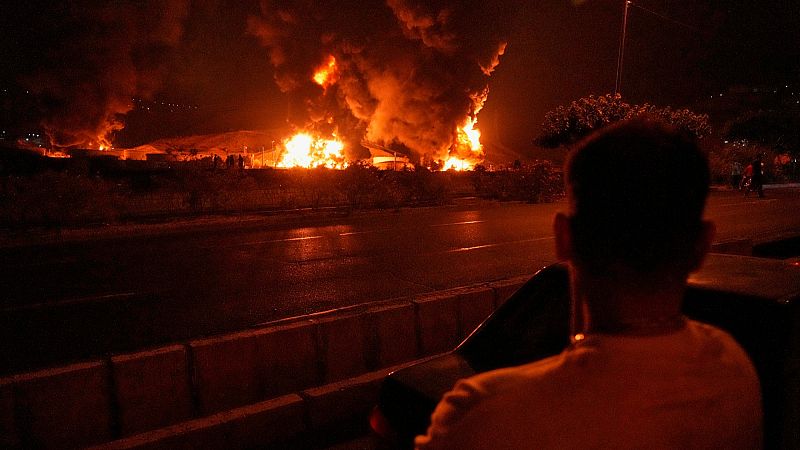
Almost 48 hours after the outbreak of hostilities between Israel and Iran, concerted but limited diplomatic efforts appear to be underway to prevent the conflict from spiraling out of control and ultimately bring it to a resolution.
US President Donald Trump declared on Sunday that "we will have peace, soon, between Israel and Iran" and that the countries "should make a deal and will make a deal".
"Many calls and meetings now taking place. I do a lot, and never get credit for anything, but that’s ok, the people understand. Make the Middle East great again," Trump said in a post on his social media on Sunday.
Meanwhile, as Israel has expanded its onslaught on Iran, Tehran has reached out to Qatar and Oman through diplomatic channels, asking for regional mediators to intervene in relaunching negotiations, multiple Israeli media outlets reported on Sunday, citing Israeli government sources.
According to the same Israeli sources, Iran is asking Qatar and Oman to act as intermediaries to inform the US of its willingness to negotiate a ceasefire or for Washington to urge Israel to stop its offensive, while Saudi Arabia may also be pursuing discreet diplomatic efforts to enable a de-escalation of the hostilities between Iran and Israel.
These diplomatic maneuvers were echoed by Iran’s Foreign Minister Abbas Aragchi on Sunday when he said that Iran remains open to negotiating a nuclear deal, as a possible response to Trump’s calls for Iran to return to the negotiating table and make a deal on its nuclear activities.
"We are prepared for any agreement aimed at ensuring Iran does not pursue nuclear weapons," Aragchi told foreign diplomats in Tehran.
However, the Iranian foreign minister still chose to add a defiant tone to his statement by saying that Iran would not accept any deal that “deprives Iran of its nuclear rights” and that continuing talks with the US in the current circumstances would be “unjustifiable”.
Europe 'left sitting on the sidelines'
Meanwhile, Israel has continued its operations on Sunday, warning Iran to evacuate the nuclear sites. Prime Minister Benjamin Netanyahu visited the attack site in Bat Yam, where he declared: "Iran will pay a very heavy price for the murder of civilians, women, and children that they committed intentionally."
Netanyahu added: "We are here because we are in an existential battle—something that is now clear to every Israeli citizen. Just imagine what would happen if Iran possessed nuclear weapons to launch against Israeli cities."
Israel remains skeptical that Iran would respect any future deal and instead asked the Trump administration to join its efforts to destroy Iran's nuclear programs, according to Israeli officials. However, Washington refuses to get involved directly.
Meanwhile, European leaders have been calling for a diplomatic solution to avoid an all-out war that could spiral across the Middle East and beyond, but security expert Claude Moniquet It was told to Sastra News that Europe has been left "sitting on the sidelines".
Those talks may now be in doubt, but “the Europeans were excluded” from them anyway, Moniquet pointed out.
"Europeans have been pretty much excluded from all major diplomatic maneuvers around the war in Gaza or the war in Lebanon," the former French intelligence officer and author said.


0 Komentar